Modeling Forests
Why forests matter?
Using the tool developed prior to my internship, the forest was modeled as an homogeneous medium (figure 1).
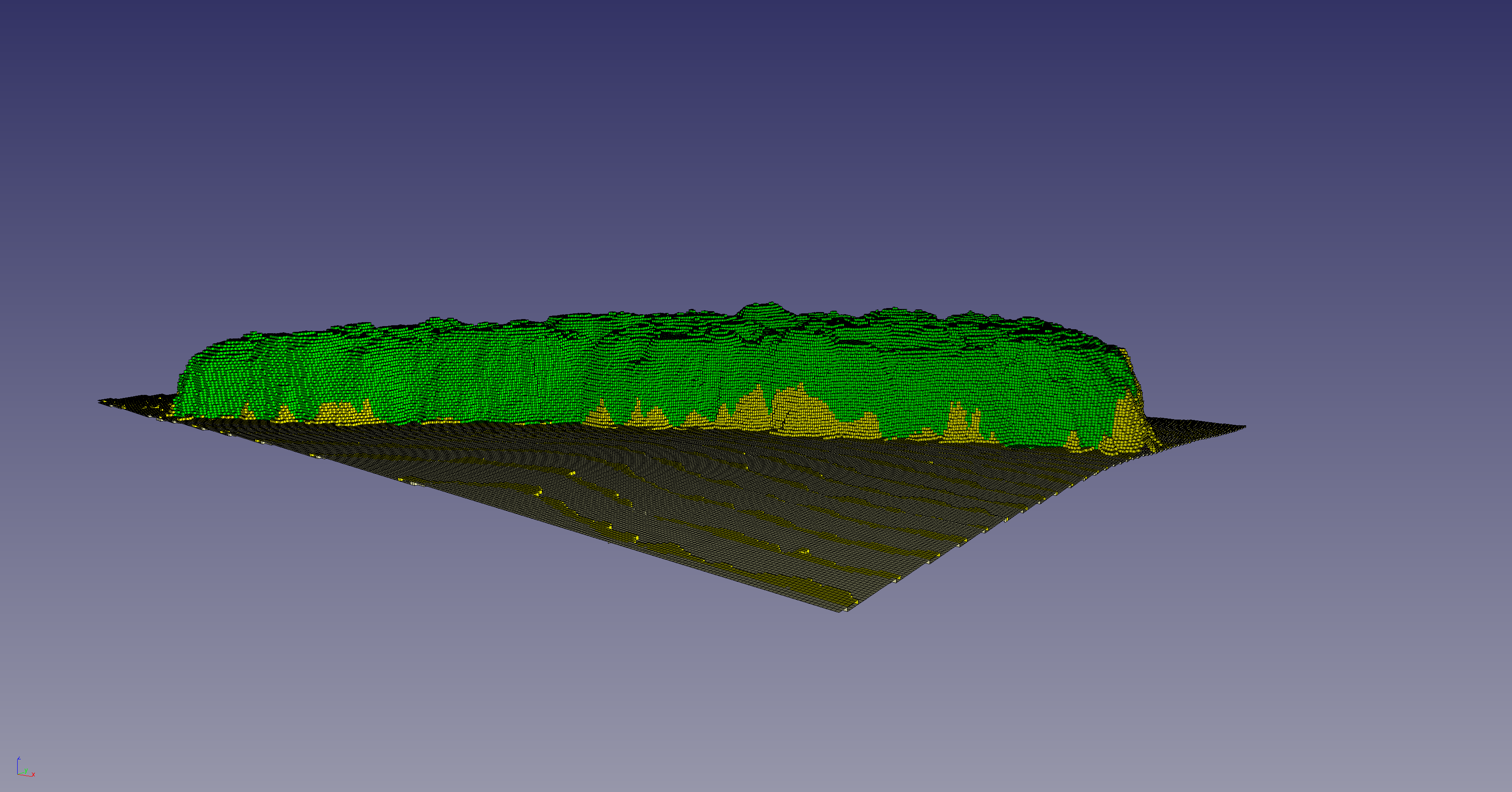
But is this model enough to model electromagnetic propagation ? Which impact have a forest on electromagnetic wave propagation.
In 2003, a team of the Swedish Defence Research Agency tried to assess the transmission losses in the UHF domain caused by the presence of a forest. [HLW03].
The emitter was position a position in front of a forest. The receptors were positioned , and from the end of the forest (figure 2).
We can observe that the forest creates frequecy loss near behind the forest and near the ground (figure 3 and 4).
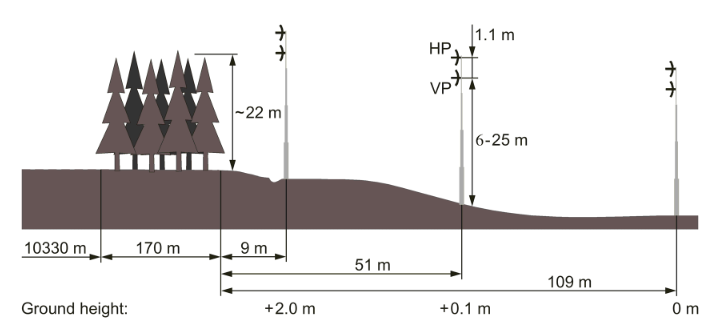
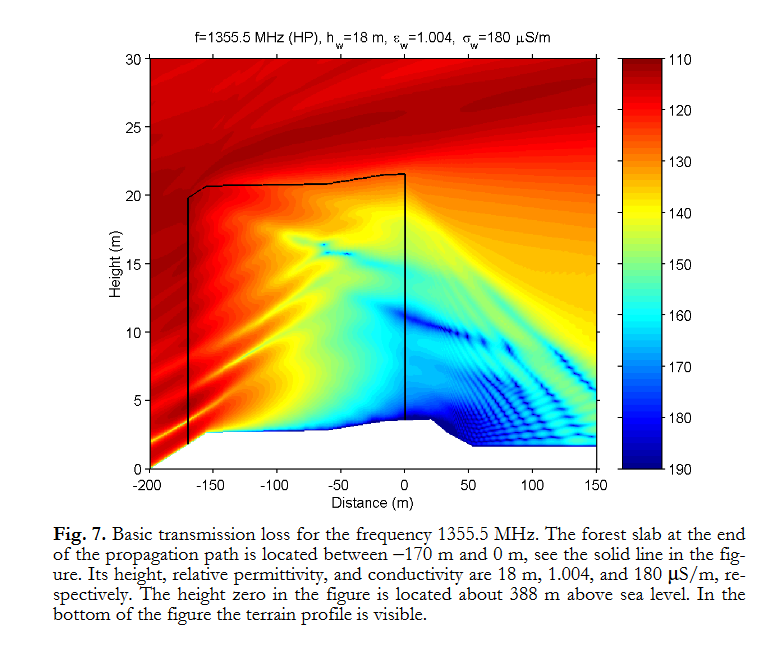
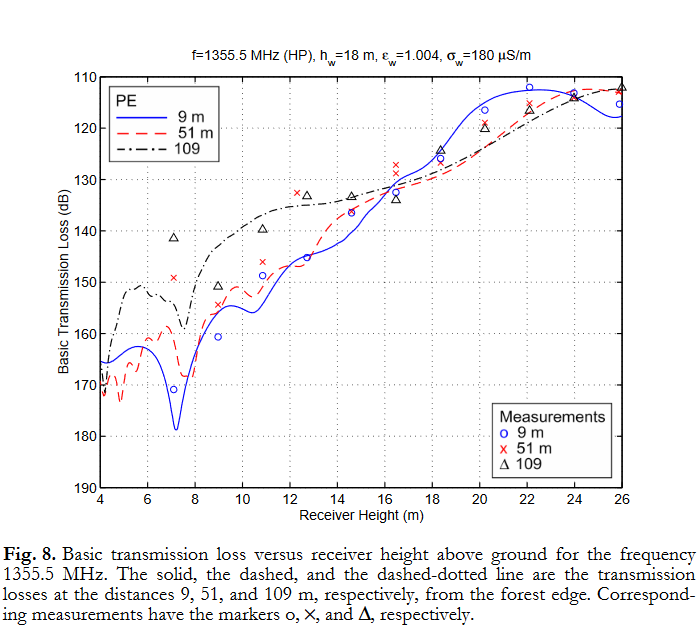
Thus, forest have an impact on the quality of the signal,
Models for modeling electromagnetic propagation in forests
Equivalence model
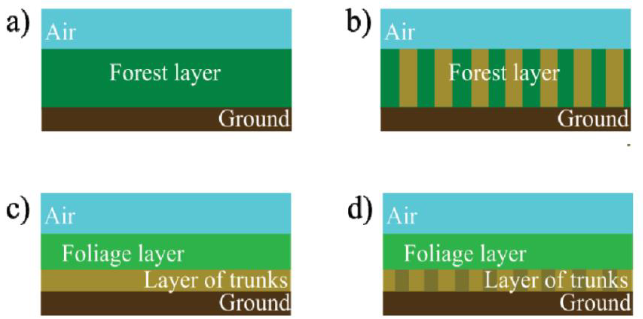
The equivalence model treats the forest as an unique material with its own permitivity and conductivity. Theodor Tamir, in three articles at the end of the 1970’s proposed some arrangements to this model with a subdivision into several layers: foliage, trunk.
Discrete model
An other approach consist on modeling every individual tree and give electromagnetical proprieties to trunk and leaves.
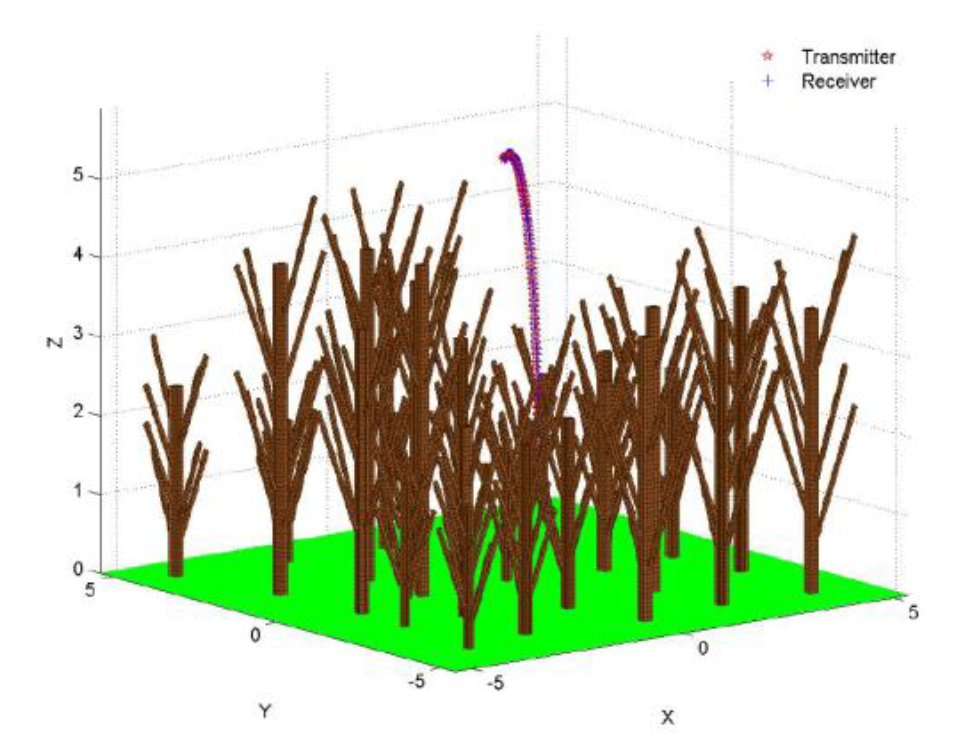
Choice of the model
The choice of the model will depend on the radio domain considered, in deed the longer is the wave length the larger the steps of the structured mesh will be.
So equivalence model will be prefered for HF and VHF and dense forests.
The discrete model will be prefered in case of isolated trees and the UHF domain.
Generation of a forest
In the following sections, we present the different methods used to generate a forest. Fist, we present the different models used to generate the trees. Then, we present the techniques used to detect and segment individual trees in a forest.
- Tree Generation
-
We present here the different models used to generate a tree.
- Tree Detection
-
We present here the different models used to segment individual trees in a forest.
 .pdf
.pdf